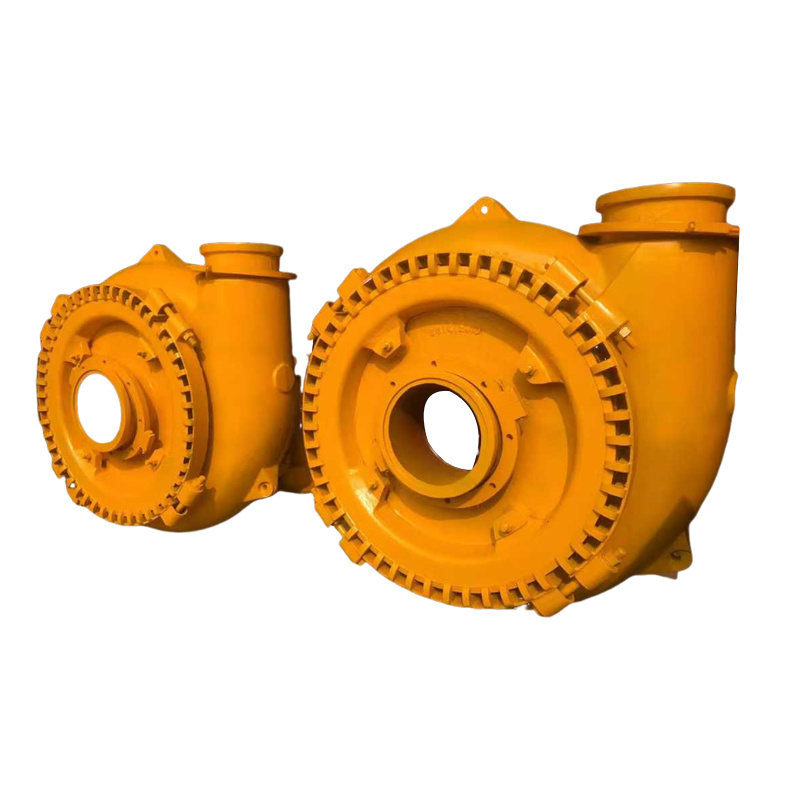The Essential Guide to Gravel Pumps: Understanding Their Importance and Functionality
Jun 30,2025

Gravel pumps are specialized pumping devices designed to transport abrasive and heavy materials such as gravel, sand, and slurry. These pumps play a vital role in various industries, including mining, construction, and dredging, where the movement of coarse materials is essential. Understanding how gravel pumps work and their applications can help businesses make informed decisions about their industrial equipment needs.
One of the primary features of a gravel pump is its robust construction. Unlike standard pumps, which may struggle with the wear and tear associated with abrasive materials, gravel pumps are built with durable materials that can withstand the harsh conditions of handling heavy solids. This construction typically includes reinforced casings and impellers designed to reduce wear, thereby extending the lifespan of the pump and minimizing maintenance needs.
Gravel pumps operate using a centrifugal action mechanism, which is efficient for transporting materials over long distances. The pump draws in the gravel-laden mixture through an inlet and propels it through a discharge outlet using rotational energy generated by the impeller. This design not only allows for the effective movement of large particles but also ensures that the material remains suspended in the fluid, preventing sedimentation within the pump itself.
In addition to their robust design and efficient operation, gravel pumps offer several advantages. They can handle a wide range of flow rates and can be adapted to various sizes based on the specific requirements of a project. Their versatility makes them suitable for both continuous and intermittent operations, allowing for flexibility in industrial processes.
Another important consideration is the pump's maintenance and operational efficiency. Regular inspections and maintenance can significantly enhance the performance of gravel pumps and prevent unexpected breakdowns. Operators should monitor wear on the impeller and casing and replace parts as necessary to maintain optimal performance.
Furthermore, gravel pumps are often equipped with advanced features such as variable speed drives, allowing for precise control over flow rates. This adaptability can be particularly beneficial in projects where material characteristics may change over time, ensuring that the pump can adjust to meet varying demands.
In conclusion, gravel pumps are indispensable tools in industries that require the efficient transport of heavy and abrasive materials. Their durable construction, effective operation, and adaptability make them a preferred choice for businesses involved in mining, construction, and dredging activities. By understanding the functionality and benefits of gravel pumps, companies can better equip themselves to handle the challenges associated with material transportation in their respective fields.
One of the primary features of a gravel pump is its robust construction. Unlike standard pumps, which may struggle with the wear and tear associated with abrasive materials, gravel pumps are built with durable materials that can withstand the harsh conditions of handling heavy solids. This construction typically includes reinforced casings and impellers designed to reduce wear, thereby extending the lifespan of the pump and minimizing maintenance needs.
Gravel pumps operate using a centrifugal action mechanism, which is efficient for transporting materials over long distances. The pump draws in the gravel-laden mixture through an inlet and propels it through a discharge outlet using rotational energy generated by the impeller. This design not only allows for the effective movement of large particles but also ensures that the material remains suspended in the fluid, preventing sedimentation within the pump itself.
In addition to their robust design and efficient operation, gravel pumps offer several advantages. They can handle a wide range of flow rates and can be adapted to various sizes based on the specific requirements of a project. Their versatility makes them suitable for both continuous and intermittent operations, allowing for flexibility in industrial processes.
Another important consideration is the pump's maintenance and operational efficiency. Regular inspections and maintenance can significantly enhance the performance of gravel pumps and prevent unexpected breakdowns. Operators should monitor wear on the impeller and casing and replace parts as necessary to maintain optimal performance.
Furthermore, gravel pumps are often equipped with advanced features such as variable speed drives, allowing for precise control over flow rates. This adaptability can be particularly beneficial in projects where material characteristics may change over time, ensuring that the pump can adjust to meet varying demands.
In conclusion, gravel pumps are indispensable tools in industries that require the efficient transport of heavy and abrasive materials. Their durable construction, effective operation, and adaptability make them a preferred choice for businesses involved in mining, construction, and dredging activities. By understanding the functionality and benefits of gravel pumps, companies can better equip themselves to handle the challenges associated with material transportation in their respective fields.
PREVIOUS:
Contact Us
E-mail :
liu@cnpumpmade.com
WhatsApp:
+8615028256698
Address:
Nanyang Industrial Park, Shifo Town, Anguo City, Hebei Province, China








